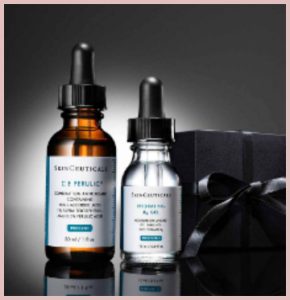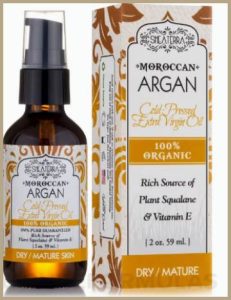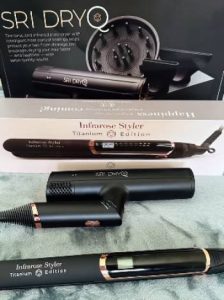I’ve spent countless mornings frowning at my thinning hair, desperate for a solution to restore its fullness.
Divi and Nutrafol emerged as top contenders, each promising thicker locks through different approaches.
In this article, I’m sharing my firsthand experience comparing these products, detailing their features, pros, cons, and real-world results.
With a conversational vibe and in-depth analysis, I’ll guide you toward the best choice for your hair goals.
Let’s explore what sets Divi and Nutrafol apart and find the right fit for you.
Comparison Table: Divi Vs. Nutrafol
| Feature/Product | Divi Hair Serum | Nutrafol Supplements |
| Type | Topical scalp serum | Oral nutraceutical supplement |
| Key Ingredients | Amino acids, peptides, caffeine | Ashwagandha, marine collagen, biotin |
| Application | Apply to scalp daily | 4 pills daily |
| Price (30-day supply) | ~$48 | ~$88 |
| Target Audience | Men and women, all hair types | Men and women, specific formulations |
| Time to Results | 90–120 days | 3–6 months |
| Subscription Option | Yes, with discounts | Yes, with discounts |
| Scientific Backing | Limited studies | Clinical studies (company-funded) |
| Side Effects | Rare scalp irritation | Possible nausea, bloating |
Why I Started This Hair Growth Journey
Hair loss creeps up slowly.
For me, it hit in my late 30s, when I noticed more strands in the shower drain than on my brush.
Stress, genetics, and years of heat styling were likely to blame.
I wasn’t ready to accept thinning hair as my new reality, so I began researching solutions.
Divi and Nutrafol stood out, praised for their natural, science-backed formulas.
I decided to try both, curious about how a topical serum stacked up against a daily supplement.
My mission was to find something effective that fit my lifestyle and budget.
Hair growth products aren’t universal.
Your routine, finances, and patience shape what works.
Divi’s a lightweight serum you apply to your scalp.
Nutrafol’s a set of pills you swallow daily.
Both promise fuller, healthier hair, but their methods, ingredients, and costs differ.
I wanted to test them in real life, beyond the glossy ads.
Understanding Divi: The Scalp Serum Approach
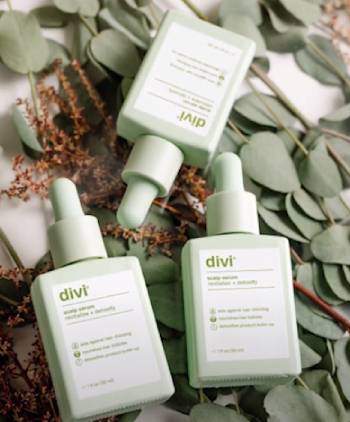
Divi’s hair serum focuses on direct scalp care.
It’s a clear, non-greasy liquid you apply once a day, preferably at night.
You part your hair, drop a few drops onto your scalp, and massage it in.
It dries quickly, leaving no sticky residue.
I appreciated that it didn’t weigh down my fine hair or make it look oily.
Key Features of Divi
Divi’s formula blends amino acids, peptides, and caffeine.
Amino acids like histidine strengthen hair strands.
Peptides, tiny protein fragments, stimulate follicle activity.
Caffeine boosts scalp blood flow, potentially waking dormant follicles.
Green tea extract adds antioxidant benefits, reducing inflammation.
The serum’s vegan, cruelty-free, and free of sulfates and parabens, aligning with my clean beauty preferences.
Divi suits all hair types—curly, straight, men, women—and requires daily use for at least 90 days to see results.
My Experience with Divi
- I used Divi for three months, and the routine became second nature.
- The dropper bottle was precise, though I sometimes wished for a spray for faster application.
- After about 10 weeks, I noticed less hair fall during showers.
- My part looked slightly fuller, too.
- It wasn’t a dramatic transformation, but it was progress.
- At ~$48 per month, the price felt manageable, especially with a subscription discount.
- I experienced mild scalp tingling after applying, which faded quickly.
It wasn’t a dealbreaker, but those with sensitive skin should be aware.
Understanding Nutrafol: The Nutraceutical Powerhouse
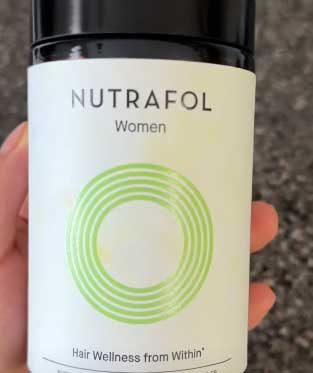
Nutrafol takes an inside-out approach, using supplements to combat hair loss.
It’s a nutraceutical—think high-potency vitamins with pharmaceutical-grade ingredients.
You take four pills daily, ideally with a meal.
Nutrafol offers tailored formulas: Women, Women’s Balance (for menopause), Men, and Postpartum.
This customization impressed me, showing they consider hormonal and life-stage differences.
Key Features of Nutrafol
Nutrafol’s ingredient list is robust.
Ashwagandha reduces stress-related cortisol, which can trigger shedding.
Marine collagen strengthens hair.
Biotin boosts keratin production.
Saw palmetto and tocotrienols (vitamin E) target DHT, a hormone linked to hair loss.
The brand cites clinical studies claiming 80% of users saw thicker hair after six months.
The pills are gluten-free, non-GMO, and free of artificial additives, matching my natural-leaning preferences.
Nutrafol’s holistic focus on stress, nutrition, and hormones felt comprehensive.
My Experience with Nutrafol
- I tried Nutrafol’s Women’s formula for four months.
- Swallowing four large pills daily was a bit daunting.
- I took them with breakfast to avoid stomach upset, which worked well.
- By month three, my hair felt thicker, and I spotted baby hairs along my hairline.
- My stylist even commented on the new growth.
- At ~$88 per month, it’s pricey, though subscriptions lower the cost slightly.
- I had mild bloating for the first two weeks, which subsided.
The results were encouraging, but the commitment felt heavier than Divi’s.
Also Read: My Experience With VEGAMOUR GRO Hair Serum
Breaking Down the Ingredients: What’s Driving Results?
- To understand their effectiveness, I examined their ingredients.
- Divi’s topical formula targets the scalp directly.
- Caffeine and peptides energize follicles.
- Amino acids and green tea extract create a healthy scalp environment.
- The ingredients are promising, but limited clinical studies left me wanting more data.
Divi feels like a skincare product for your scalp—focused but not deeply researched.
- Nutrafol’s systemic approach is broader.
- Ashwagandha tackles stress.
- Collagen and biotin build hair strength.
- Saw palmetto blocks DHT.
- Company-funded studies back these claims, with data showing reduced shedding and thicker hair.
- Independent research would be ideal, but Nutrafol’s evidence is stronger.
- Both avoid harsh chemicals, which I valued.
Your preference—external or internal treatment—shapes the choice.
Pros and Cons of Divi
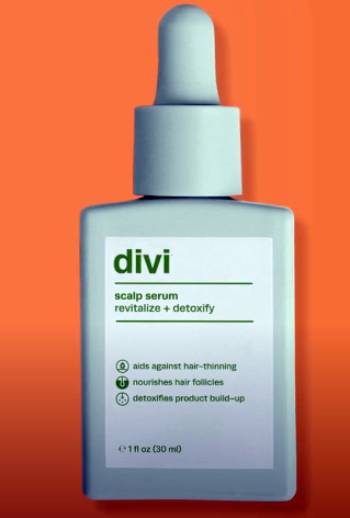
Pros:
- Easy-to-apply serum fits into daily routines.
- Affordable at ~$48/month.
- Non-greasy, lightweight formula.
- Vegan and cruelty-free.
- Works for all hair types.
Cons:
- Limited clinical studies on effectiveness.
- Mild scalp tingling for sensitive skin.
- Results take 90+ days.
- Dropper application can be slow.
Pros and Cons of Nutrafol
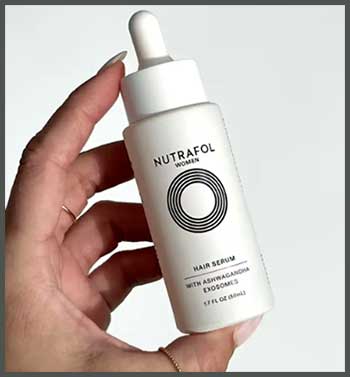
Pros:
- Backed by clinical studies (company-funded).
- Targets multiple hair loss causes (stress, hormones).
- Customized formulas for men, women, and life stages.
- High-quality, natural ingredients.
- Noticeable results in 3–6 months.
Cons:
- Expensive at ~$88/month.
- Requires taking 4 large pills daily.
- Possible digestive side effects (bloating, nausea).
- Longer commitment for results.
How They Compare in Real Life
- Testing Divi and Nutrafol gave me a clear sense of their strengths.
- Divi’s serum was effortless to use—no pills, no hassle.
- I’d apply it while watching TV, and it felt like a small self-care ritual.
- The price didn’t strain my budget, and the tingling was a minor annoyance.
- Results were modest—healthier-looking hair but no dramatic regrowth.
It suited my busy routine and preference for topical treatments.
- Nutrafol required more effort.
- Four pills a day felt like a chore, and the cost stung.
- But the results were more noticeable—thicker hair and baby hairs boosted my confidence.
- The bloating was a hiccup, but it passed.
- Nutrafol’s holistic approach made me feel I was tackling root causes, not just symptoms.
It demanded patience, but the payoff felt worth it.
- Time to results is a key difference.
- Divi’s 90–120 days felt manageable.
- Nutrafol’s 3–6 months tested my resolve.
- If you want quicker wins, Divi might edge out.
If you’re ready to invest time and money for potentially better results, Nutrafol’s compelling.
Cost and Accessibility: What’s Your Budget?
- Price is a big factor in long-term use.
- Divi’s $48/month (less with a subscription) is budget-friendly.
- Nutrafol’s $88/month feels like a splurge.
- A year of Divi costs ~$576, while Nutrafol runs ~$1056.
- That gap adds up fast.
Both offer subscription discounts, but Nutrafol’s baseline cost is steeper.
- Both are available online—Divi through its website and select retailers, Nutrafol via its site, Amazon, and some dermatologists.
- Neither requires a prescription, making them accessible.
- I found Divi’s shipping faster, but Nutrafol’s packaging felt more premium.
If cost is a concern, Divi’s the clearer choice.
Also Read: My Thoughts On Noor Hair Serum
Maintenance Tips for Divi and Nutrafol
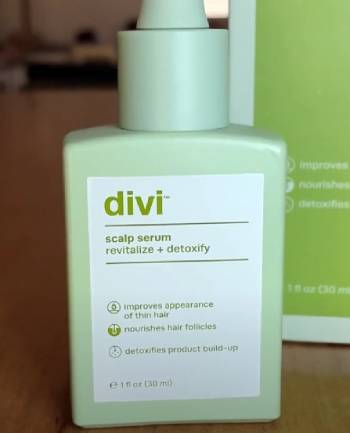
- Divi: Apply on a clean, dry scalp for optimal absorption. Use consistently at the same time daily to build a habit. Part your hair in sections to ensure even coverage, focusing on thinning areas. Massage gently for 1–2 minutes to boost circulation. Avoid washing your hair for at least 4 hours post-application to let the serum work. Store in a cool, dry place away from direct sunlight to preserve potency. Check the dropper for clogs and clean it weekly to prevent buildup.
- Nutrafol: Take all four pills with a meal containing healthy fats (like avocado or nuts) to enhance absorption and minimize stomach upset. Pair with a balanced diet rich in protein and iron to support hair health. Drink plenty of water to aid digestion and nutrient delivery. Store pills in their original container to protect from moisture. Avoid splitting doses; take them together for consistent nutrient levels. Track your intake with a pill organizer to stay on schedule.
Who Are These Products For?
Divi’s perfect for those seeking a simple, affordable topical solution.
It’s great for early-stage thinning or people who dislike pills.
If you have sensitive skin or want a low-commitment option, Divi shines.
Its ease of use makes it approachable for beginners.
Nutrafol suits those ready to invest in a comprehensive, internal approach.
It’s ideal for stress-related hair loss, hormonal imbalances, or moderate thinning.
If you’re okay with pills and a higher price, Nutrafol’s tailored formulas are appealing.
It’s for people who see hair health as part of overall wellness.
I leaned toward Nutrafol because I suspected stress was driving my hair loss.
Its systemic approach felt thorough.
But Divi’s simplicity and cost kept it in contention.
Your choice depends on your lifestyle, budget, and hair loss triggers.
The Science Question: How Much Proof Is There?
Divi claims a “science-backed” formula, but I found few peer-reviewed studies.
Caffeine and peptides show promise in small trials, but the brand leans on user testimonials.
It’s not a red flag, but I wanted more robust data.
The ingredients make sense, yet the evidence feels thin.
Nutrafol has an edge with clinical studies.
A 2018 study (company-funded) showed 80% of women reported thicker hair after six months.
Another linked saw palmetto to lower DHT levels.
These findings are encouraging, though independent research would strengthen the case.
Nutrafol’s data gave me more confidence, but neither product is flawless.
My Verdict: Which One Wins?
After months of testing, I’m torn.
Divi’s simplicity and affordability make it a great starting point.
It’s low-risk, easy to use, and delivered modest results.
Nutrafol’s pricier and more demanding, but its holistic approach and stronger results won me over.
I’d stick with Nutrafol for its comprehensive formula, but I’d recommend Divi to anyone new to hair growth products.
Your decision hinges on what you value—convenience or depth.
Try Divi for a quick, budget-friendly option.
Choose Nutrafol if you’re committed to a longer, systemic solution.
Consistency is key with either.
Also Read: My Experience With Grow Gorgeous Hair Density Serum
Frequently Asked Questions (FAQs)
Hair growth may slow, and benefits like reduced shedding could fade over time.
High cost, large pills, and potential digestive side effects like bloating.
Viviscal, another nutraceutical hair supplement, is a key competitor.
Viviscal’s formula includes marine collagen and biotin, similar to Nutrafol.
Final Thoughts
You’re at a crossroads, just like I was, wondering if Divi or Nutrafol holds the answer to fuller hair.
I’ve shared my journey—Divi’s ease and Nutrafol’s depth both have their merits.
Your lifestyle, budget, and patience will steer you.
Whether you choose Divi’s affordable serum or Nutrafol’s premium pills, stick with it and give your hair time to thrive.

